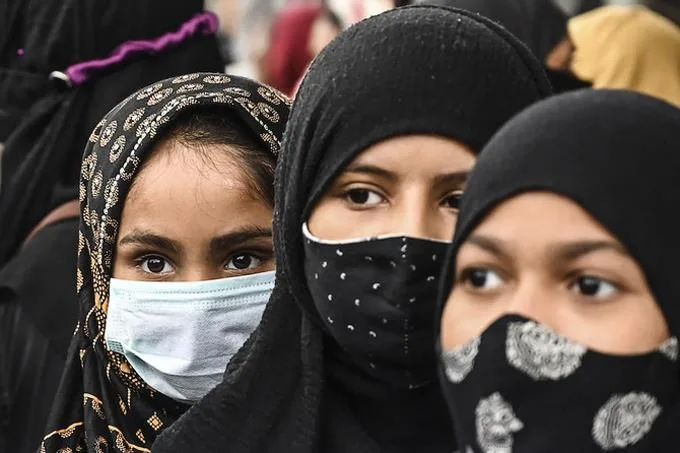Women who go against Iranian rules will receive warning messages from the cameras.
To identify and punish women who disobey the Islamic Republic’s strict dress code, Iranian police announced on Saturday that they intend to install “smart cameras.”
The police will use “smart devices and cameras placed in public places and on the roads to identify people who violate the rules,” the institution said in a statement.
By informing them of the legal repercussions of recidivism in this crime, the authorities will be able to send “evidence and warning messages to transgressors of the hijab law,” or the Islamic veil, he added.
Since the start of the wave of protests sparked by the death, in September, of Mahsa Amini, a 22-year-old Kurdish-Iranian woman, after being detained for allegedly disobeying the law, a growing number of Iranians have questioned the demand. for women to wear headscarves.
Shortly after the success of the 1979 Islamic Revolution, the headscarf became mandatory. The protests that followed Amini’s death resulted in the arrest of thousands, the execution of four protesters, one of them in broad daylight, and the deaths of some 500 people due to state repression. With calls to impose the hijab from clergy and conservatives, tensions over its non-use, which has been a national requirement since 1983, have recently increased.
The Ministries of Education and Health declared on Monday that they will not allow students to enroll in universities and institutions if they do not wear headscarves. The government is also closing establishments across the country that cater to discovered women.
In addition, there are the “vigilantes” who take matters into their own hands and attack women who wear their heads uncovered. A video shows a man throwing yogurt on the heads of two women in late March because they don’t cover their faces. Several girls were poisoned in numerous Iranian schools this past Saturday, according to Iranian media reports, which have been shaken for more than four months by mysterious student poisonings.
Since the end of November, numerous schools, mostly girls’ schools, have been affected by sudden poisonings caused by gases or toxic substances, causing them to feel sick and faint. There were some students who needed to be admitted.
The deputy chairman of the National Commission of Inquiry, Hamidreza Kazemi, was quoted on Friday by state television as saying the organization’s final report will be released “within two weeks.” According to a local official quoted by the Iribnews news agency, at least “60 students were poisoned (on Saturday) at a girls’ school in Haftkel,” in southwestern Khozestan province.
According to the same source, other female students also got drunk in “five schools in Ardabil, in the northwest”, where they presented “symptoms of anxiety, shortness of breath and headache.”
The Ilna agency reported that “an unknown number” of primary school students in Urmia, the city that serves as the capital of Azerbaijan’s western (northwestern) province, were also affected “after a gas projection”, but did not provide further information. information.
According to an official count of March 7, “more than 5,000 students” would have been intoxicated in more than 230 establishments spread over 25 of the 31 provinces of the country. After the announcement of 100 arrests in early March, the poisonings had stopped, but three weeks later they had resumed.
Ayatollah Ali Khamenei, the Supreme Leader of Iran, had demanded “severe penalties”, including the death penalty, against those who would be held accountable for these poisonings on March 6.
